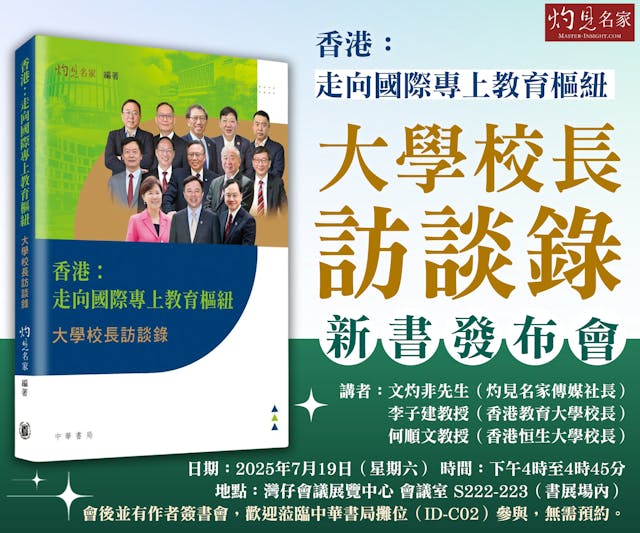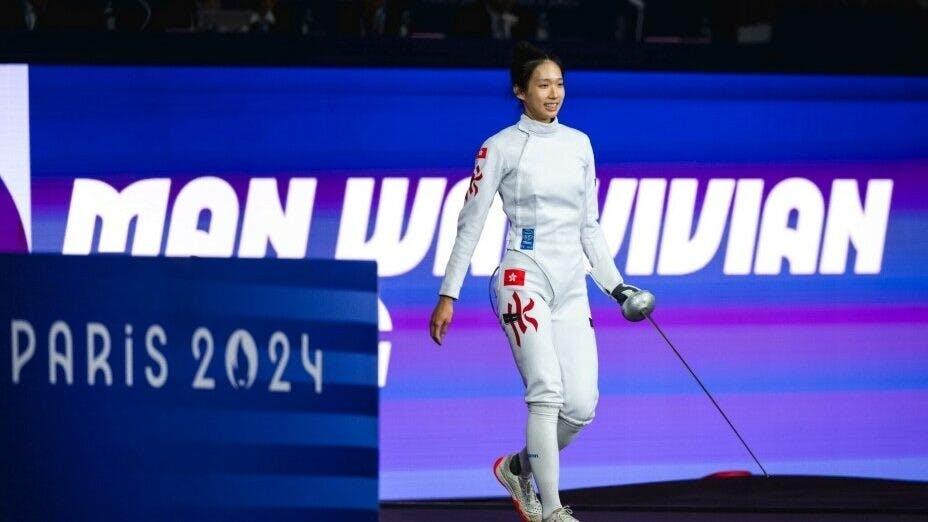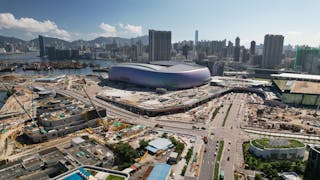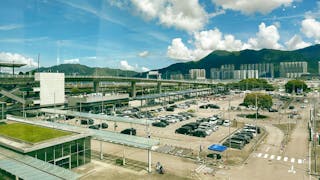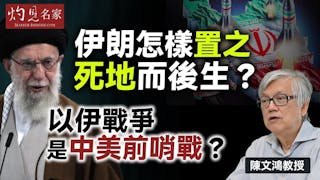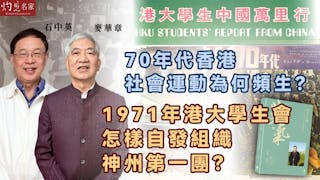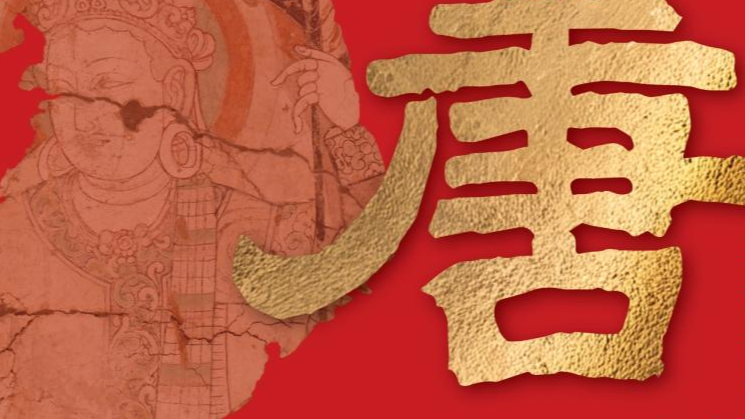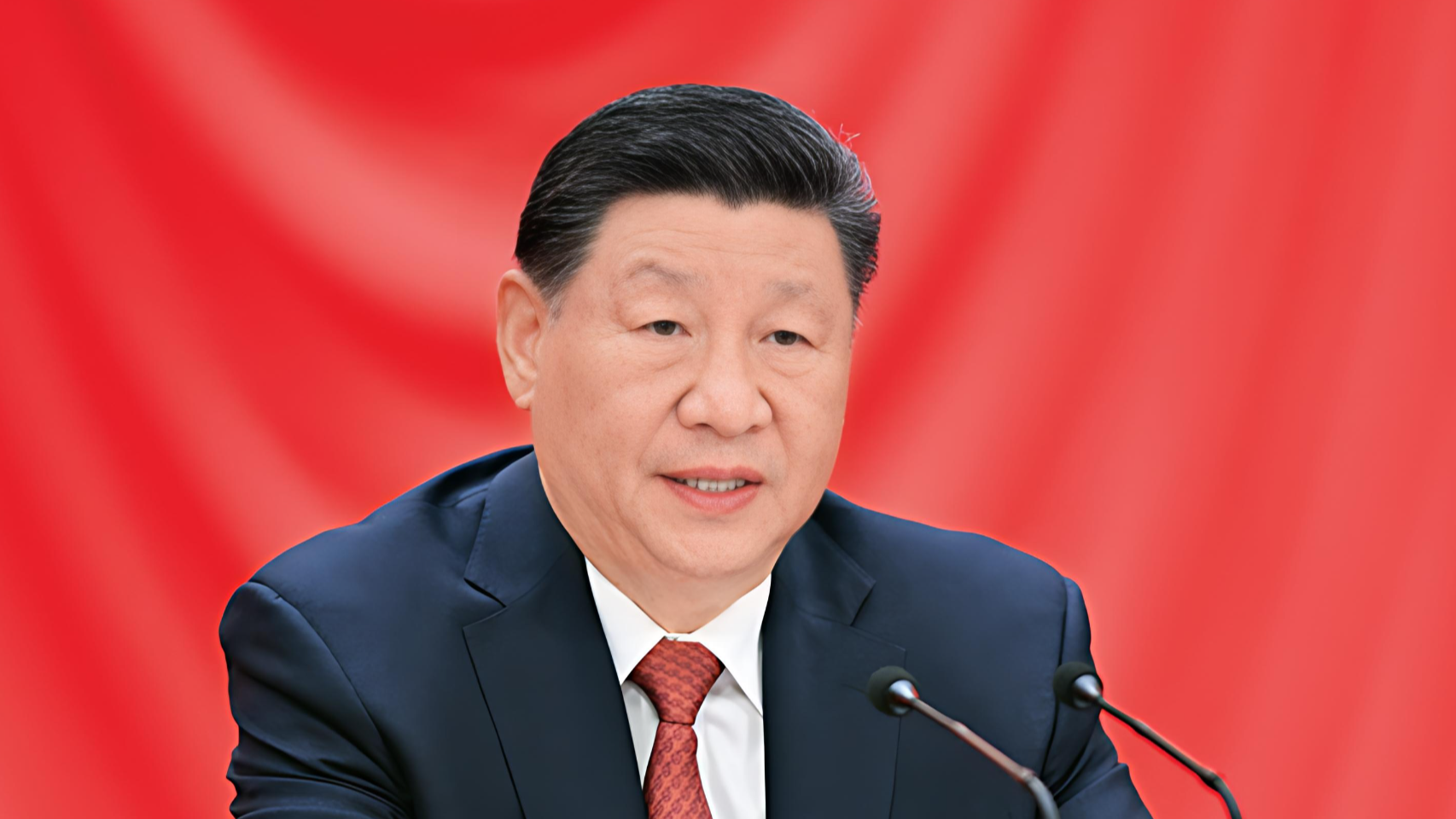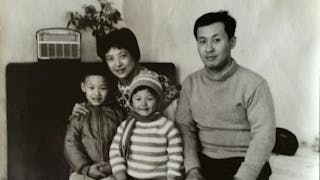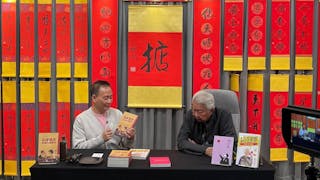從分析的角度來看,2024年巴黎奧運會的一個有趣現象是,雖然香港本地身份認同,因部分香港運動員奪得4枚獎牌的勝利而得到強化,但更多香港人同時認同自己是中國人,因為許多中國內地運動員取得了令人印象深刻的勝利。因此,香港人的中華民族認同感與強烈的香港本土認同感日益增強。
身份是指個人和群體對其社會、文化、地方和國家歸屬和認可的自我認知。它可以透過民意調查、訪談、小組討論和社會文化行為觀察來衡量。
2024年奧運吸引了中國內地和香港、澳門的大量觀眾,市民透過電視直播、數碼設備和社交媒體、電子新聞平台觀看精彩的體育賽事。
雖然澳門因不屬於國際奧委會而無法參加奧運會,但澳門的中國公民一直有觀看奧運會的傳統,期盼祖國大陸能夠贏得盡可能多的獎牌。澳門華人的中華民族認同感一向很強。
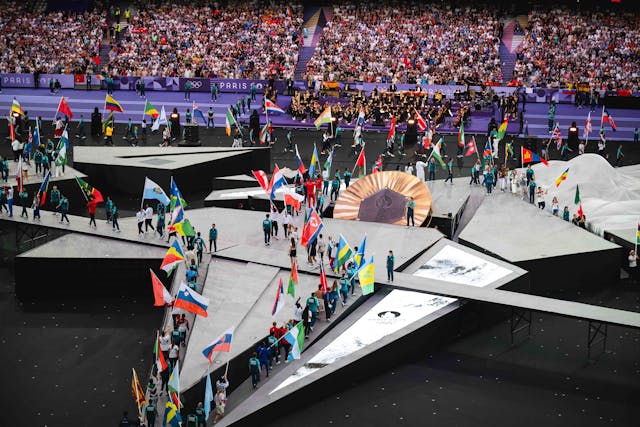
香港的本土認同感發展
自1970年代以來,香港的本地和國家認同不斷演變。香港的民族認同感於1970年代出現,1967年暴動後,「香港節」活動的推出為本地注入了更強烈的認同感。後來,在1980年代和90年代,香港透過參與亞洲和世界各地的各種區域性和全球性體育賽事,激發了香港的本土認同感。
1996年,李麗珊贏得奧運滑浪風帆金牌,香港本地的認同感達到了頂峰。她的勝利吸引發了本地傳媒的大肆報道,並激勵了香港人積極參與風帆活動。她的名言「香港運動員唔係垃圾」,為香港體育未來幾年在全球舞台的崛起鋪平了道路。
2004年雅典奧運,高禮澤與李靜代表香港奪得乒乓球男雙銀牌。李慧詩在2012年倫敦奧運奪得女子凱林賽銅牌。2020年東京奧運會,香港表現出色,奪得一枚金牌(男子花劍張家朗)、兩枚銀牌(女子200米和100米自由泳何詩蓓)和三枚銅牌(女子乒乓球杜海琹、李皓晴、蘇慧音;女子空手道為劉慕裳;女子場地自由車爭先賽為李慧詩)。
在2024年巴黎奧運會上,香港隊贏得了兩枚金牌和兩枚銅牌,其中包括男子花劍張家朗、重劍選手江旻憓,以及女子200公尺和100公尺自由泳的何詩蓓。

體育表演與民族主義
毫無疑問,中國在奧運會上的表現歷來都很強,尤其是在乒乓球、跳水、體操,以及最近的游泳等項目上。
中國內地和香港運動員的驕人表現,給內地和香港、澳門的中國人帶來了民族激情、自豪感、榮耀和尊嚴。
1997年以後,中國內地奧運健兒在2000年悉尼奧運、2004年雅典奧運、2008年北京奧運、2016年里約奧運和2020年東京奧運取得驕人成績後均來港訪問,這已成為重要傳統。2024年奧運會後,國家隊代表團亦計劃訪問香港。
傳統上,體育表演與中國民族主義和愛國主義在香港的鞏固是自然地交織在一起的,這種現象與香港本地認同的強化同時發生。
2024年奧運會,香港傳媒,包括社交媒體和互聯網,都充斥着觀眾和網民對內地和香港運動員的精彩表現,尤其是對張家朗和江旻憓來之不易的勝利的歡呼和興奮。
中國民族認同與香港本地認同的和諧共存或許被忽視了──這種和諧現象與2004年至2019年截然不同,當時一些本地傳媒或許不幸地誇大了所謂國家認同與本土認同之間的「緊張關係」。
2024年奧運期間,許多香港人顯然對中國內地和香港運動員的表現感到自豪。媒體上充滿了對內地和香港運動員的讚揚和讚賞。
香港人所珍視的香港身份,包括勤奮、堅韌、堅持、毅力和韌性等元素,正如香港運動員無論是否獲得獎牌的表現所體現的那樣。香港人和澳門華人的中華民族認同包含了中華民族自豪感、榮耀感、尊嚴感、自我滿足感,以及愛國主義的成分。中國作為一個國家在全球體育競賽中真正站起來並取得了優異的成績,這與1840年代至1930年代中華民族積貧積弱的全球形象不同。
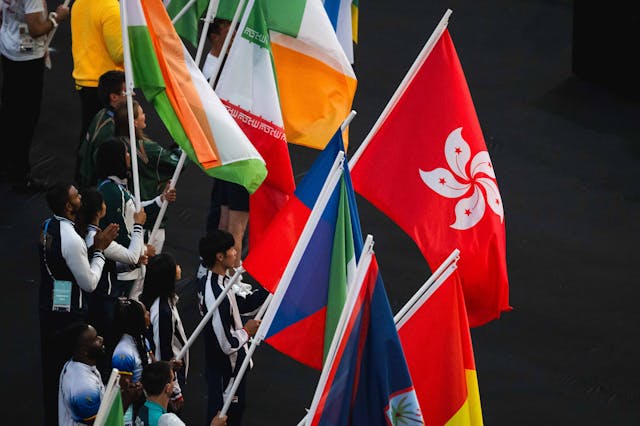
參考內地 體育發展制度化
香港立即感受到了2024年奧運會的影響,愈來愈多的本地人期望政府改善體育政策,審查資助所謂「精英」體育的標準,並有效審查體育賽事的治理和表現。
事實上,香港和澳門應該可以學習中國內地的良好做法,中國內地的體育發展不僅制度化,而且系統地實施了識別、支持、資助和培養能代表國家出賽的高素質人才的政策和程序。
2024年奧運會還可以為推動香港和澳門的國民教育作出貢獻,中國公民在巴黎目睹了中國國旗如何升起,中國國歌如何演奏。許多在巴黎的中國內地觀眾以極大的熱情、深厚的愛國情懷,激動又光榮地高唱中國國歌《義勇軍進行曲》,這一現象促進了香港人和澳門人的中華民族認同的發展和進一步增強。
當張家朗、江旻憓奪得金牌時,升起了中國國旗,奏響了中國國歌,不僅是中華民族認同與香港本土認同的融合,也是中華民族的象徵意義和認同比地方認同具有天然的優勢。
總而言之,內地和香港運動員的驕人表現,為內地和香港、澳門的中國人民帶來了民族的激情、自豪感、榮耀和尊嚴。體育和中國民族主義傳統上是交織在一起的。內地和香港運動員在2024年奧運會上的出色表現,鞏固了香港人的中華民族認同和香港本土的認同,也為港澳國民教育的發展作出了巨大貢獻。
Olympics, national identity and local identity: Reflections and observations
From an analytical perspective, an interesting phenomenon of the 2024 Olympic Games is that while the local Hong Kong identity has been strengthened due to the victory of some Hong Kong athletes who grasped four medals, more Hong Kong people have been simultaneously identifying themselves as nationally Chinese because of the impressive triumph of many mainland Chinese athletes. As such, the national Chinese identity of Hongkongers is increasing alongside with their strong local Hong Kong identity.
Identity refers to the self-perception of individuals and groups on their social, cultural, local and national affiliation and recognition. It can be measured by opinion surveys, interviews, group discussions, and observations from socio-cultural behavior.
The 2024 Olympic Games have attracted a huge audience from mainland China and Hong Kong as well as Macau where citizens have been watching the fascinating competitions in sports events through live television broadcast, digital and social media, and electronic news platforms.
Although Macau cannot participate in Olympics because it is not part of the International Olympic Committee, the Macau Chinese citizens have been traditionally watching Olympics with the great expectation that their motherland, mainland China, can win as many medals as possible. The national Chinese identity of the Macau Chinese has been habitually strong.
Hong Kong’s local and national identities have evolved since the 1970s. Hong Kong identity emerged in the 1970s as Hong Kong Festivals were introduced to inject a stronger sense of local identity after the 1967 riots. Later, in the 1980s and 1990s, the local identity was stimulated through Hong Kong’s participation in various regional and global sports events in Asia and the world.
The local Hong Kong identity reached an apex in 1996 when Lee Lai Shan won an Olympic medal in wind-surfing. Her victory triggered a fanfare in the local media and provided an incentive for the local people to participate actively in wind-surfing activities. Her remarks that “Hong Kong athletes are not rubbish” paved the way for the rise of Hong Kong sports in the global arena in the coming years.
Representing Hong Kong, Ko Lai- chak and Li Ching acquired a silver medal for men’s double in table tennis at the 2004 Athens Olympics. Lee Wai-sze succeeded in grasping a bronze medal in women’s keirin cycling in the 2012 London Olympics. During the 2020 Tokyo Olympics, Hong Kong performed very well by grasping one gold medal (Cheung Ka-long in men’s foil fencing), two silver medals (Siobhan Haughey in women’s 200 and 100 meter freestyle) and three bronze medals (Doo Hoi-kem, Lee Ho-ching and Minnie So in women’s table tennis; Grace Lau in women’s karate; and Lee Wai-sze in women’s sprint cycling).
In the 2024 Olympics, Hong Kong grasped two gold medals and two bronze medals, including Cheung Ka-long in men’s foil fencing, Vivian Kong in fencing, and Siobhan Haughey in women’s 200 and 100 meter freestyle.
Undoubtedly, China’s performance in Olympics has been traditionally very strong, especially in the areas of table tennis, diving, gymnastics and recently swimming.
It has been an important tradition that, after 1997, many mainland Chinese Olympic athletes visited Hong Kong following their impressive performance in the 2000 Sydney Olympics, the 2004 Athens Games, the 2008 Beijing Olympics, the 2016 Rio Olympics and the 2020 Tokyo Olympics. Another visit to Hong Kong after the 2024 Olympics is anticipated.
Sport performance has been traditionally and naturally intertwined with the consolidation of Chinese nationalism and patriotism in Hong Kong – a phenomenon that occurs alongside with the strengthening of the local Hong Kong identity.
In the 2024 Olympics, the Hong Kong media, including the social media and the internet, have been filled with the cheers and excitement of audience and netizens over the impressive performance of both mainland and Hong Kong athletes, especially the hard-fought victory of Cheung Ka-long and Vivian Kong.
The harmonious coexistence of national Chinese identity and local Hong Kong identity has perhaps been neglected – a harmonious phenomenon very different from 2004 to 2019 when some of the local media perhaps unfortunately exaggerated the so-called “tensions” between national and local identities.
During the 2024 Olympics, it is clear that many Hong Kong people feel proud of the performance of both mainland Chinese and Hong Kong athletes. The mass media have filled with praise and appreciation of mainland Chinese and Hong Kong athletes.
The Hong Kong identity cherished by the Hongkongers includes the elements of diligence, tenacity, persistence, perseverance and resilience as symbolized by the performance of Hong Kong athletes, regardless of whether they succeeded in acquiring medals or not. The national Chinese identity of Hongkongers, and Macau Chinese too, embraces the ingredients of their sense of Chinese pride, glory, dignity and self-satisfaction as well as patriotism. China as a nation has really stood up and excelled in global sports competition, unlike a global image of a weak Chinese nation in from 1840s to 1930s.
The impacts of the 2024 Olympics have been immediately felt in Hong Kong, where more locals are expecting the government to improve its policy on sports, to review its criteria of funding so-called “elite” sports, and to scrutinize the governance and performance of various sports associations in a far more comprehensive and effective manner.
In fact, Hong Kong, and Macau, can and should learn from the good practices of mainland China, where sports development has been characterized by not only institutionalization but also systematic implementation of policies and procedures of identifying, supporting, subsidizing and training potentially high-performing athletes who can and will represent the nation.
The 2024 Olympics can also contribute to the efforts at promoting national education in both Hong Kong and Macau, where Chinese citizens have witnessed how the national Chinese flag was raised and the Chinese anthem was heard again and again in Paris. Many mainland Chinese audiences in Paris were seen singing the Chinese national anthem, “March of the Volunteers,” with great enthusiasm, profound patriotism and sentimental glory – a phenomenon stimulating the development and further growth of Chinese national identity of Hongkongers and Macau Chinese.
When Cheung Ka-long and Vivian Kong won the gold medals, the Chinese national flag was hoisted and the Chinese national anthem was heard – a sign of not only a blend of the national Chinese identity and local Hong Kong identity, but also the natural preponderance of the national Chinese symbolism and identitification over the local identity.
In a nutshell, the impressive performance of mainland Chinese and Hong Kong athletes has brought about the national excitement, pride, glory and dignity of the Chinese people in the mainland, Hong Kong and Macau. Sports and Chinese nationalism have been traditionally interwoven. As such, the outstanding performance of mainland Chinese and Hong Kong athletes during the 2024 Olympics has consolidated both the national Chinese identity and local Hong Kong identity of the people of Hong Kong, contributing also immensely to the development of national education in Hong Kong and Macau.
原刊於澳門新聞通訊社(MNA)網站,本社獲作者授權轉載。原文網址:OPINION – Olympics, national identity and local identity: Reflections and observations | Macau Business




